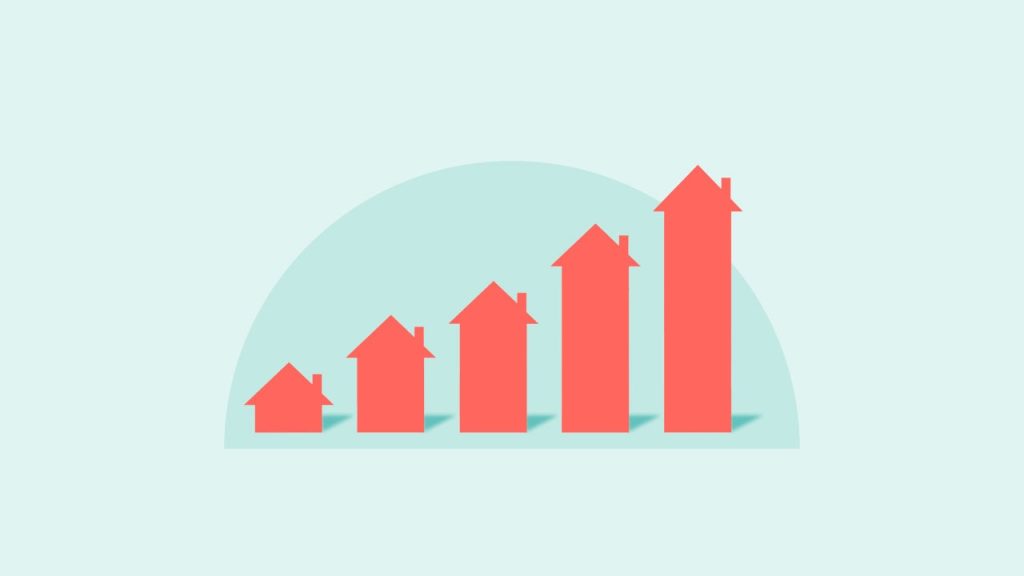Richard Drury/ Getty Images; Illustration by Austin Courregé/Bankrate
A new month, a new low for home equity rates: The $30,000 HELOC (home equity line of credit) dropped to 8.55 percent — a 52-week low, according to Bankrate’s national survey of lenders. Meanwhile, the average $30,000 home equity loan fell one basis point to 8.40 percent.
“Home equity loans and HELOCs at a lower rate would be very beneficial to buyers,” says Kori Sassower, founder and principal agent at The Kori Sassower Team, a New York-based real estate firm. “Many of the homes we are seeing that are coming to the market are homes that need a lot of work, many of them being sold by the original owners. These homes need full renovations which are very expensive out of pocket, so a home equity loan and a good rate would be a great way to bridge the gap for buyers.”
| Current | 4 weeks ago | One year ago | 52-week average | 52-week low | |
|---|---|---|---|---|---|
| HELOC | 8.55% | 8.70% | 10.04% | 9.20% | 8.55% |
| 15-year home equity loan | 8.48% | 8.42% | 9.13% | 8.72% | 8.37% |
| 10-year home equity loan | 8.55% | 8.50% | 9.09% | 8.75% | 8.46% |
| Note: The home equity rates in this survey assume a line or loan amount of $30,000. | |||||
What’s driving home equity rates today?
While HELoan rates have sunk but bobbed around a bit in recent months, HELOC rates have steadily moved lower in 2024 — and the pace quickened with the onset of autumn. Their moves are currently being driven by two factors: lender competition — as banks and mortgage companies try to attract applicants with low-for-a-limited-time loan terms — and the Federal Reserve’s actions. Earlier in November, the central bank cut rates for the second meeting in a row, this time by a quarter point, reflecting the moderation of inflation. The final Fed meeting of 2024 takes place on Dec. 17-18.
“HELOC rates will be sensitive to declining interest rates and borrowers will see rates steadily moving lower, even faster than fixed-rate home equity loans,” says Greg McBride, chief financial analyst at Bankrate. “HELOC rates could fall faster than credit card rates, particularly if competition brings about introductory offers and if credit card issuers are skittish about delinquencies and slower to pass along lower rates.”
The conclusion of the 2024 presidential race has also fueled interest among borrowers, especially for HELOCs used for home improvement. “Many people were sitting on the sidelines to see what would happen with the election and interest rates,” says Tyson Blackburn, chief lending officer at Quorum Federal Credit Union, an online lender serving members across the U.S. “After the election, we saw a big uptick in demand.”
What influences home equity loan rates?
Several factors can influence rates on home equity loans and HELOCs.
Chief among them: changes to the Federal Reserve’s monetary policy. New home equity loans and HELOCs are tied to the prime rate, which tends to move alongside the benchmark interest rate that the Fed adjusts. As a result, when the Fed raises rates, borrowing costs on equity-based loans tend to go up. And the opposite happens when it lowers rates.
The Fed’s moves influence the general direction of interest rates not just for home equity loans, but also for consumer loans and financing in general. However, because they use your home as collateral, HELOCs and HELoan rates tend to be more akin to current mortgage rates — and much less expensive than the interest charged by credit cards and personal loans, which aren’t secured.
Comparing consumer loan rates
The Fed’s monetary policy influences interest rate trends overall and advertised rates you see. However, the individualized offer you receive from a lender on a particular HELOC or new HELoan reflects an additional factor: your creditworthiness — specifically your credit score, debt-to-income ratio, and the value of the home you’re putting up as collateral.
Read the full article here
